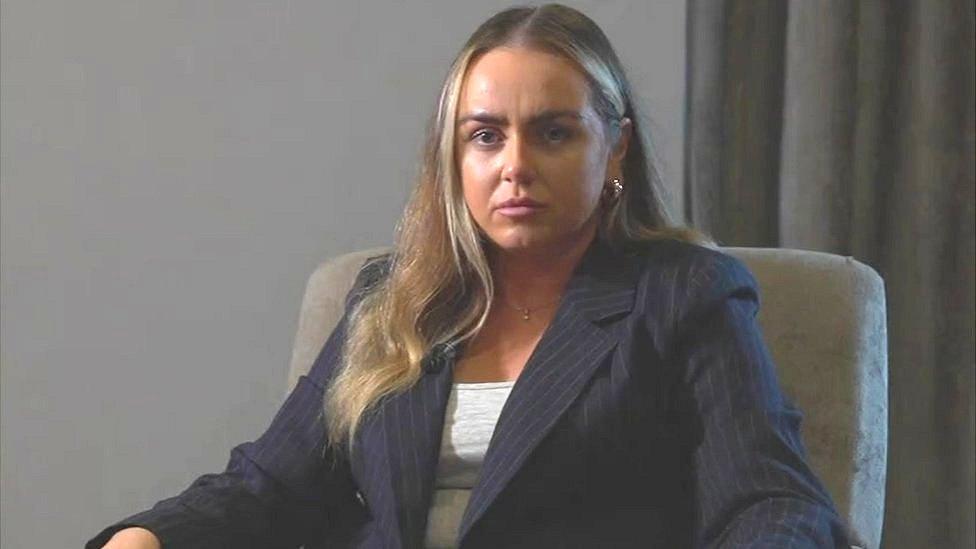Haileigh Ashton Lamont calls for change in sex abuse cases
- Published
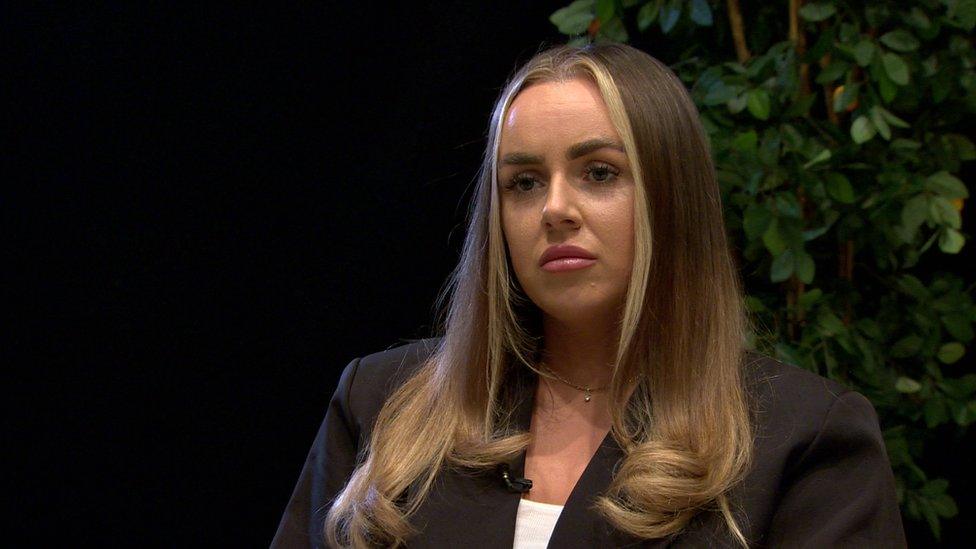
Haileigh Ashton Lamont said she feels "duty bound to speak up and help others" after her own court case
Last year, Haileigh Ashton Lamont saw her abuser jailed.
The Belfast woman waived her anonymity to speak about the decade of childhood sexual abuse she had suffered at the hands of her stepfather.
Tommy Harris received a 16-year sentence - eight to be spent in prison and eight on licence - after admitting 42 charges of sexual assault.
Now, Haileigh wants to help other victims and survivors navigate the court system.
She says the criminal justice system must change, and believes that change must start within society.
"By not speaking about child sexual abuse, the perpetrators are getting away with it," she told BBC News NI.
"There's absolutely no shame in talking about it and raising awareness to make people who are suffering feel supported.
"I'm never going to stop talking about this and I'm doing it because I don't want anyone to suffer the way I did because it was so tough.
"I feel duty bound to speak up and help others."
Historic abuse cases
Haileigh believes that victims being given more information on the legal process, and being more involved, would improve the experience.
"Having gone through each stage of the process myself, I understand why some victims want to wash their hands of the process because it is re-traumatising," she said.
"And not knowing what to expect is hard. If victims were better prepared and had more knowledge, they could go to court with insight and support."
Haileigh is also calling for two legal changes.
She does not think that defendants who plead guilty in historic abuse cases should be given reduced sentences.
"For me, the people who carried out this abuse had time to come forward. They're only in court because they were brought there, years later, so why should they get credit?" she said.
She also wants victims to be given the chance to deliver what is known as a victim impact statement in court.
During her case, Haileigh was not allowed to read her statement in front of her abuser.
"That was so important for me, to face him like that, and I wasn't allowed to do it. And I felt brave and empowered to do it, but I wasn't allowed to," she said.
"It's not so much the words that you would say. It's the sound of your voice in a courtroom in front of other people saying: 'I've exposed you, you didn't get away with it. There are consequences.'
"We're not nameless or faceless statistics, and there's no shame so I think that victims should be able to stand in court and read out a statement and then choose, if they want to, to leave, never want to talk about it again - or confidently use their voice and be supported in doing that.
"We're not weak. What was done to us hasn't made us weak.
"Other people will want their anonymity and of course they should have that, but the choice should be there."
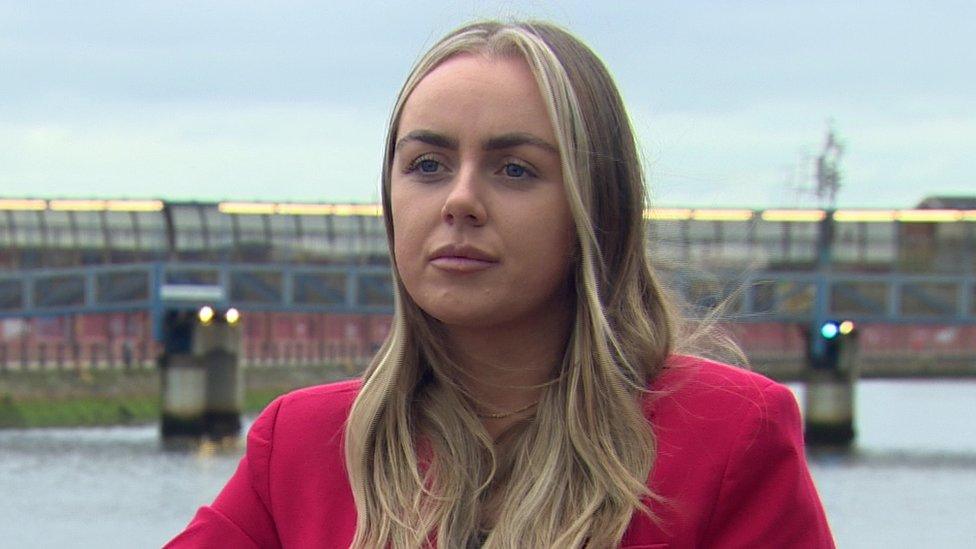
Haileigh Ashton Lamont last spoke to BBC News NI on the day her stepfather was jailed for abusing her
Haileigh's case ended with a conviction but many other cases involving sexual abuse do not have the same outcome.
The last available figures from the Public Prosecution Service show that between 2020 and 2021:
608 people were charged or reported for rape
26 defendants were brought to Crown Court for rape
Eight people were convicted of rape
"My message has never been to encourage other victims to come forward," Haileigh said.
"I'm not saying you will go to police and your journey will be the same as mine, I know that's not the reality, and the statistics reflect that it's not going to be the same as my journey.
"All I want to do is to share my story to give other people hope and to better prepare victims for what to expect, if and when they do come forward.
"Whenever people hear a victim's story, I feel as though those sympathetic eyes need to turn to - what can we do to help? How are we going to change this? What can we do to come together and make a change?
"I respect that change will take time, but it does need to happen."
Haileigh has met Justice Minister Naomi Long to discuss her concerns.
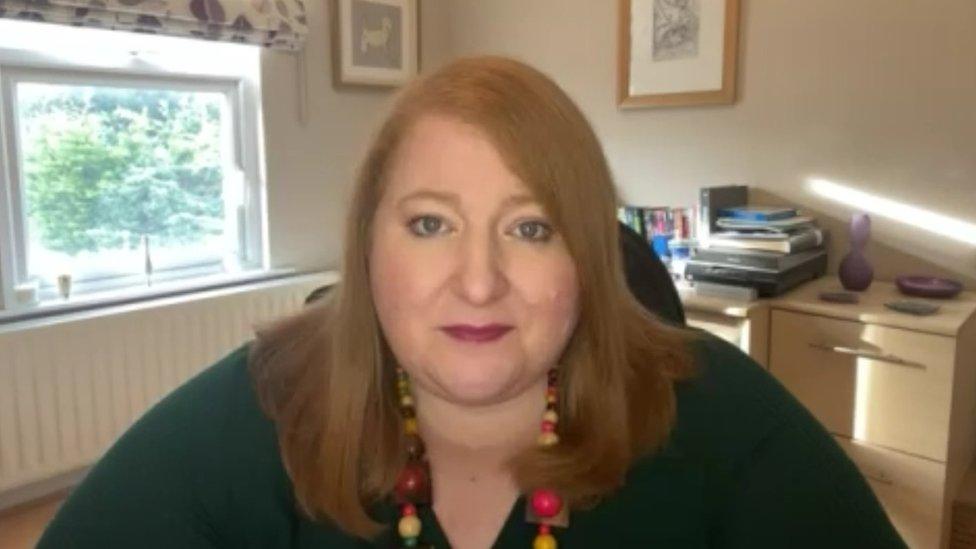
Naomi Long said the experience of abuse victims is crucial in shaping legislation to improve the justice system
The minister told BBC News NI her department had introduced a two-year pilot scheme providing victims of sexual assault with sexual offences legal advisors to help guide them through the legal process.
Ms Long said change takes time, but she is listening.
"We need to hear those real lived-in experiences that are sometimes less than perfect in order to challenge ourselves to do better," she said.
"Genuinely sitting down and listening to what victims have been through, working with them to try to address any deficit in the system, is to me one of the most important things we do as a department.
"It leads to real change, and I hope that Haileigh will see that too."
After all that she has been through, would Haileigh go to court again?
"Every day I get up and I ask myself - if you'd have known everything you know now - back on the seventh of July 2020, when you walked into the police station, would you have still walked in?" she said.
"And the answer is always, absolutely."
Related topics
- Published5 November 2021
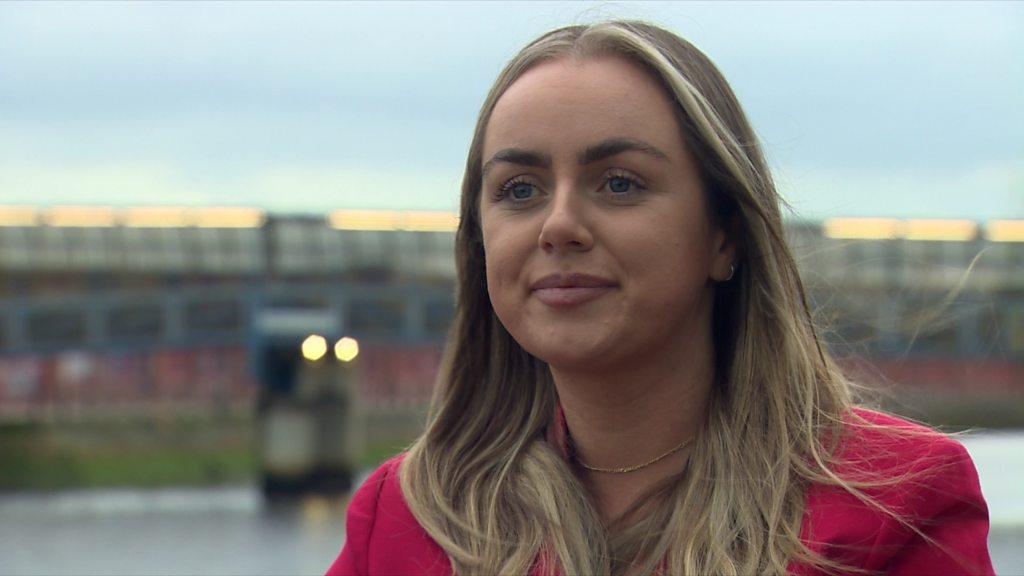
- Published5 November 2021
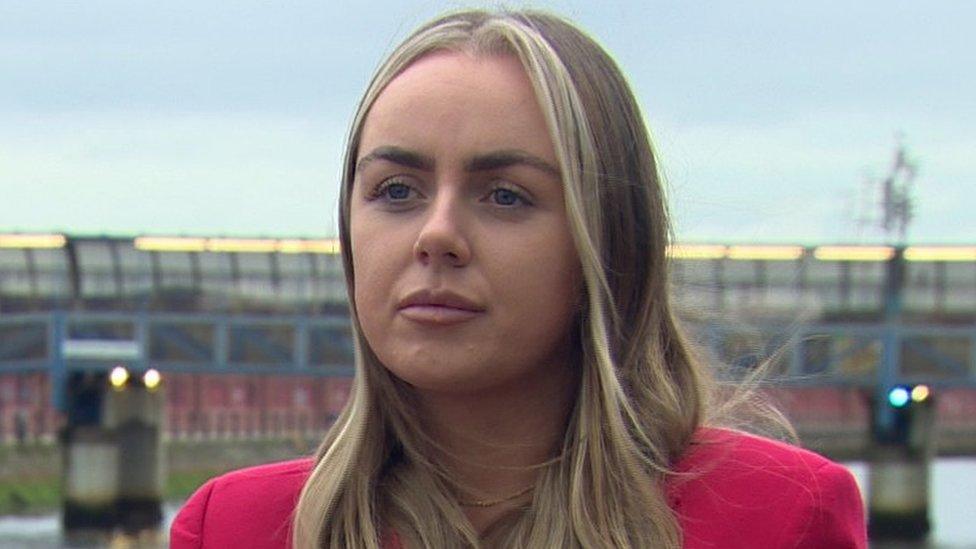
- Published22 October 2021
